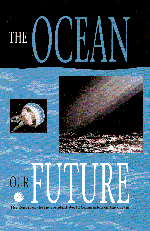3 - Ocean Science and Technology
Published online by Cambridge University Press: 05 August 2012
Summary
The democratic and development-orientated approach to the oceans advocated in this report must be based on knowledge provided by modern science and technology. Without this knowledge, the awareness of individuals and groups will be deficient, and their participation in ocean affairs may be misdirected. Technical considerations can make it difficult for the lay person to understand and interpret the scientific phenomena underlying important public issues. Special interest groups may use their own interpretations of such phenomena to advance their own ends, sometimes at the expense of a broader public interest. In the final analysis, civil society needs to buttress itself against such manipulations, and seek to obtain the best available information about the oceans as the foundation for informed judgements.
For many centuries, scientific and technological advances have driven the development of new insights into the oceans. We now have unprecedented knowledge of the oceans, and humankind's relationship with the sea, through the use of new materials, electronics, miniaturization of equipment, acoustic techniques, earth-orbiting satellites, computers and lasers. More has been learned about the nature of the oceans in the past 25 years than during all preceding history. Dramatic new insights about the seabed and life in the oceans, such as plate tectonics, hydrothermal vents and ocean–atmosphere linkages, have captured the imagination of both policy-makers and the general public. However, what we know about the oceans is still outweighed by what we do not know.
- Type
- Chapter
- Information
- The Ocean: Our Future , pp. 75 - 96Publisher: Cambridge University PressPrint publication year: 1998

